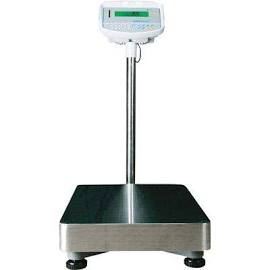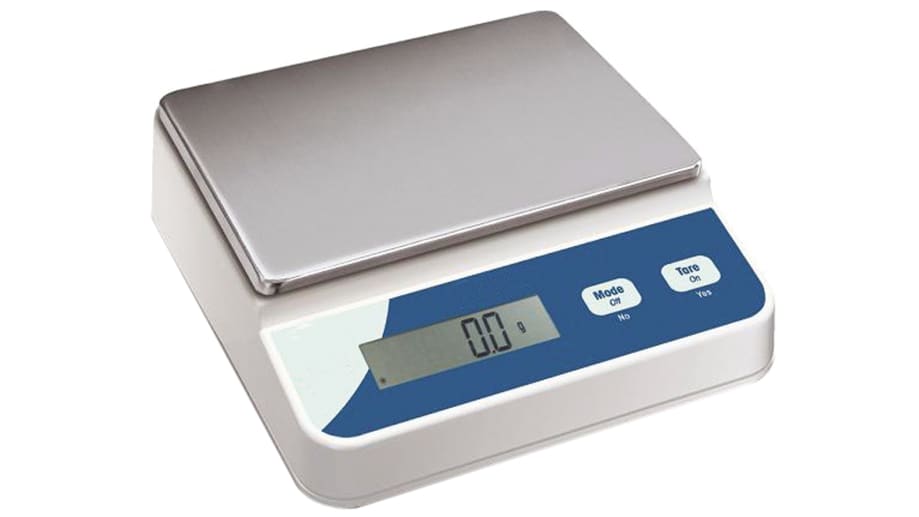Understanding the Different Types of Industrial Scales for Your Business
Understanding the Different Types of Industrial Scales for Your Business
Blog Article
How Industrial Scales Work: A Detailed Review for New Users
Understanding the mechanics behind industrial scales is essential for new individuals that desire to ensure accuracy in their measurements. These gadgets count on tons cells and stress gauge innovation to convert weight into a measurable style, however the nuances of their operation expand beyond mere capability. From the different kinds available to the important methods for appropriate usage and maintenance, each facet plays a considerable function in achieving trustworthy outcomes. As we check out these components, one must consider just how these aspects interact to boost performance in diverse commercial applications.
Fundamentals of Industrial Scales
Industrial scales are essential devices utilized throughout different sectors, including production, logistics, and agriculture, to ensure precise weight measurements of hefty loads. The basic principle behind commercial scales entails the conversion of weight right into a measurable form that can be displayed electronically or analogically. These ranges employ numerous systems, such as tons cells or mechanical levers, to identify the weight of objects positioned upon them.

Along with their dimension capacities, commercial ranges are developed to hold up against extreme settings, including durable construction that resists dirt, wetness, and hefty influences. Calibration and maintenance are crucial to make sure precision, as even minor inconsistencies can bring about substantial economic ramifications. By recognizing the essentials of industrial ranges, customers can value their significance in different industrial applications.
Sorts Of Industrial Scales
Numerous types of industrial scales deal with the diverse requirements of different industries, each designed to handle certain weighing jobs with accuracy and reliability. Amongst the most common types are flooring scales, which are excellent for evaluating bulky and heavy products. These ranges commonly include big systems and can fit palletized items, making them essential in storage facilities and shipping centers.
An additional kind is bench scales, which are frequently utilized for smaller items in manufacturing and retail setups. They offer accurate dimensions for items that need precision, such as chemicals or components in production line (Industrial Scales). For mobile procedures, mobile ranges offer versatility and simplicity of transport, ideal for fieldwork or short-lived setups
In applications needing high-capacity measurements, such as in bulk product handling, crane scales and load cells are used. These scales can determine lots suspended from a crane or other lifting device, making certain safety and security and accuracy throughout procedures. Furthermore, specialized scales like checkweighers are made use of in assembly line to maintain quality assurance by making certain that items satisfy weight specifications. Each kind of industrial range plays a vital duty in boosting functional performance and accuracy throughout different markets.
How Considering Systems Work
Considering devices are necessary parts that allow accurate measurement of mass across various commercial ranges. These systems utilize various principles of physics and engineering to give accurate weight readings, important for stock monitoring, top quality control, and conformity with regulatory criteria.
One usual kind of weighing system is the lots cell, which runs on the principle of stress determines. When a tons is applied, the lots cell warps a little, producing an electric signal symmetrical to the weight. This signal is then converted right into an understandable weight measurement by the range's electronics.
An additional widely used mechanism is the mechanical equilibrium, which employs a system of bars and weights. Industrial Scales. This method counts on the concept of stability, where the weight of the object being gauged is stabilized against known weights, enabling straight dimension
In addition, pneumatically-driven and hydraulic scales leverage fluid characteristics principles to determine weight. see this here These systems use the pressure applied by a tons to establish weight, using high accuracy for massive loads.
Appropriate Use Methods
When utilizing commercial ranges, sticking to proper use strategies is vital for maintaining and guaranteeing accurate measurements tools honesty. It is necessary to select the proper scale for your certain application, as scales differ in capability and accuracy.
Before considering, ensure that the scale is positioned on a steady, level surface free from vibrations or disturbances. This will aid to reduce errors brought on by outside elements. Furthermore, calibrate the range according to the supplier's specs prior to utilize, guaranteeing that it is working properly.
When putting items on the scale, distribute the weight equally to avoid tipping or damaging the equipment. Constantly allow the scale to support prior to videotaping the weight, as fluctuations may occur throughout first positioning. For bulk materials, utilize containers that are proper for the scale size to prevent overloading.
In addition, stay clear of putting overly hot or cold items straight on the range, as temperature level variations can affect precision. Maintain the considering system cost-free and clean of debris to avoid contamination and guarantee dependable outcomes. By following these methods, users can maximize the performance and long life of their industrial ranges.
Upkeep and Calibration Tips
Making sure the longevity and accuracy of industrial scales requires diligent upkeep and regular calibration. A preventative maintenance timetable is crucial; it should include regular inspections to recognize wear and tear, particularly on load cells and various other delicate components. Frequently cleaning up the range's surface area and making sure the surrounding area is cost-free from particles will aid preserve its integrity and performance.
Calibration is just as vital and should be performed at routine intervals or whenever the range experiences significant modifications in temperature, humidity, or physical displacement. Utilize licensed calibration weights that are deducible to nationwide requirements for precision. Document each calibration session diligently to track performance in time and identify any type of fads address or reoccuring concerns.
Train all operators on appropriate range usage and maintenance protocols to make certain constant efficiency and accuracy. By sticking to these maintenance and calibration ideas, individuals can boost the dependability of their commercial scales, guaranteeing optimal procedure in any kind of setup.
Final Thought

Understanding the auto mechanics behind commercial scales is important for brand-new individuals that want to find more info make certain accuracy in their dimensions.Industrial scales are important tools used across different markets, including production, logistics, and farming, to make certain accurate weight measurements of heavy lots. The essential concept behind industrial ranges includes the conversion of weight right into a quantifiable type that can be shown electronically or analogically. By understanding the basics of industrial scales, individuals can appreciate their significance in various commercial applications.
In final thought, comprehending the operation and upkeep of industrial ranges is vital for guaranteeing precise weight measurements in different applications. (Industrial Scales)
Report this page